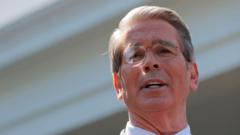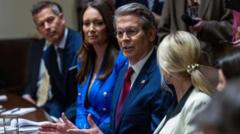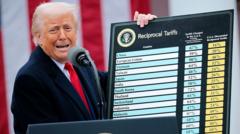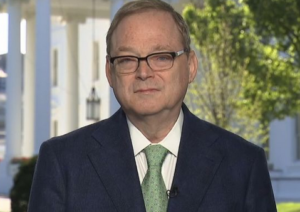Beijing's call for tariff cancellation comes as the US imposes significant levies on Chinese imports, heightening global trade tensions.
China Demands Total Elimination of US Tariffs Amid Stalled Trade Talks

China Demands Total Elimination of US Tariffs Amid Stalled Trade Talks
China's commerce ministry appeals to President Trump to abolish all reciprocal tariffs as the trade conflict between the US and China deepens.
Beijing has intensified its appeal to the United States, urging President Donald Trump to "completely cancel" what it deems the misguided reciprocal tariffs in the ongoing trade dispute between the two economic superpowers. In recent developments, Trump declared a temporary halt to a range of global tariffs he had previously planned; however, the tariffs on Chinese imports have skyrocketed to 145%.
The Chinese commerce ministry issued a statement, expressing hope that the US would correct its missteps by rescinding the contentious tariffs and restoring a relationship grounded in mutual respect. In a slight concession, the Trump administration announced exemptions for certain technological items, such as smartphones, computers, and semiconductors, which has provided a glimmer of hope for both tech companies and consumers who have expressed concerns over anticipated price hikes due to imposed tariffs.
Nonetheless, the prospect of a significant diplomatic thaw remains elusive, as US trade representative Jamieson Greer indicated on CBS's Face the Nation that there are currently no plans for Trump to engage directly with Chinese President Xi Jinping. Tariffs enforced by Trump have escalated from an initial 54% in April to the current 145% level. In retaliation, China has introduced its own tariffs, beginning at 34%, climbing to 84%, and now reaching 125%. The Chinese commerce ministry underscored its determination to "fight to the end" against what it views as aggressive US tariff policies.
As this trade conflict unfolds, US coffee retailers express concern about potential price increases directly tied to tariffs, while Trump has highlighted his tariffs as a strategic maneuver to renegotiate trade agreements viewed as disadvantageous to the United States. His administration argues that this approach aims to rectify perceived flaws in the global trading system and to stimulate domestic job growth. However, the repercussions of such trade strategies have already sparked volatility in the stock market and raised apprehensions regarding downturns in global trade, which could adversely impact employment and national economies worldwide.






















